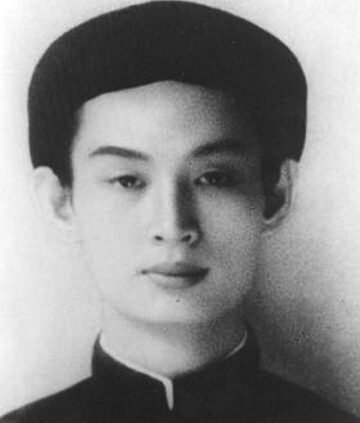Third International
Quốc tế Cộng sản, còn gọi là Quốc tế III hay Đệ tam Quốc tế, là một tổ chức chính trị cực tả theo đường lối chủ nghĩa Marx-Lenin. Tổ chức được thành lập vào tháng 3 năm 1919 ở Moskva và giải tán vào năm 1943. Cương lĩnh hoạt động của Quốc tế Cộng sản là đấu tranh lật đổ chủ...
Lão Giáo
Taoism or Daoism (/ˈtaʊ.ɪzəm/ ⓘ, /ˈdaʊ.ɪzəm/ ⓘ) is a philosophical and religious tradition indigenous to China, emphasizing harmony with the Tao 道 (Chinese: 道; pinyin: dào, pronounced (IPA): /tɑʊ̯/ (Chineseⓘ)). With a range of meaning in Chinese philosophy, translations of Tao include 'way', 'road', 'path', or 'technique', generally understood in the Taoist sense as an enigmatic process of transformation ultimately underlying reality.[2][3] Taoist thought has informed the development of various practices...
Taoism
Taoism or Daoism (/ˈtaʊ.ɪzəm/ ⓘ, /ˈdaʊ.ɪzəm/ ⓘ) is a philosophical and religious tradition indigenous to China, emphasizing harmony with the Tao 道 (Chinese: 道; pinyin: dào, pronounced (IPA): /tɑʊ̯/ (Chineseⓘ)). With a range of meaning in Chinese philosophy, translations of Tao include 'way', 'road', 'path', or 'technique', generally understood in the Taoist sense as an enigmatic process of transformation ultimately underlying reality.[2][3] Taoist thought has informed the development of various practices...
Vô Vi
Vô Vi Vô vi là tư tưởng của triết gia Lão Tử trong Đạo giáo. Ông nói: "Vô vi nhi vô bất vi" (無為而無不為). Tạm dịch là: Không làm gì mà không gì là không làm. Hiểu một cách nôm na là, nếu bạn không làm gì mà thấy không việc gì thì không nên làm. Thiên nhiên trời...
Wu Wei 吴伟
无为(简体中文:无为;繁体中文:无为;拼音:wúwéi)翻译为“无为”或“毫不费力的行动”,是一个重要的古代中国概念。无为起源于春秋时期,最早出现在《诗经》中,成为儒家、中国治理和道教的中心思想。它通常指的是理想的政府国家,皇帝的行为,体现了个人和谐、自然自发性和自由放任的态度。无为表示一种特定的精神或精神状态,在儒家思想中,与既定的道德规范相一致。
Xiang Yu
Xiang Yu (c. 232 – c. January 202 BC),[1] born Xiang Ji, was a Chinese warlord who founded and led the short-lived kingdom-state of Western Chu during the interregnum period between the Qin and Han dynasties known as the Chu–Han Contention (206–202 BC). A nobleman of the former state of Chu, Xiang Yu rebelled against the Qin dynasty under the command of his uncle Xiang Liang, and was granted the title of "Duke of Lu" (魯公) by King Huai II of the restoring...
